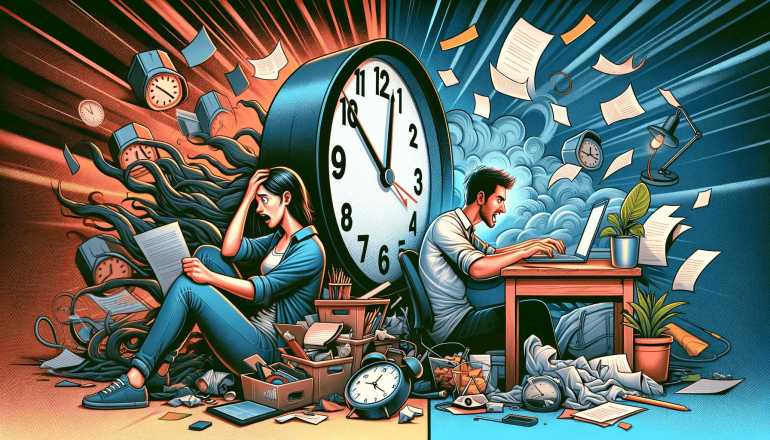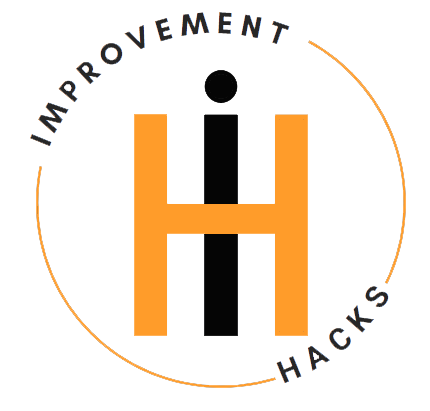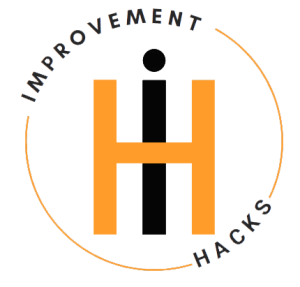Have you ever found yourself putting off tasks you know you need to be doing right now, especially the important ones, and you end up feeling bad about it later?
I’m assuming you said yes about that.
Well, guess what?
Even psychologists struggle with procrastination, and that’s precisely why there’s been a ton of research done into trying to unravel its mysteries.
Right, let’s jump into the fascinating world of procrastination, have a look at its complexities, and explore ways to turn your intentions into actions.
So What is This Procrastination Stuff All About?
Think of procrastination like this: imagine you have an important letter to post, but you keep putting it off, day after day.
You intend to do it, there’s nothing stopping you, but you just don’t get round to it.
Meanwhile, the anxiety of not sending the letter starts to build up.
This, in essence, is procrastination.
According to Klingsieck (2013), procrastination happens when:
• You’re not doing something you plan to do.
• The task is significant to you.
• There are no external barriers stopping you.
• You face negative outcomes by not doing it.
• You feel bad for not doing it.
So, in a nutshell, procrastination is the act of voluntarily delaying an important task, even though it feels bad to put it off, and it will ultimately make things worse for you (Steel, 2007).
The Illogical Side of Putting Stuff Off
When we procrastinate, we are actually acting against our own best interests.
We know we should be doing the job, but we just don’t, and this usually makes things worse for us in the long run (Klingsieck, 2013).
It’s like having a small leak in your house and ignoring it until it becomes a much bigger problem.
A Historical Perspective
Interestingly, the term “procrastinate” wasn’t always negative.
It’s derived from Latin, and it simply means “putting off until tomorrow”.
It only really came about in recent times, and by applying an emphasis on efficiency and punctuality, it’s adopted a negative connotation (Ferrari et al., 1995).
Causes of Procrastination
Alright, so now that we have an idea about what procrastination is, let’s have a look at why we do it so much.
Procrastination isn’t just about putting off tasks; it’s often a reflection of our inability to regulate ourselves effectively.
Psychologists have offered a number of different theories to try to explain why we procrastinate.
One of them suggests that procrastinators struggle with self-regulation (Wolters et al., 2017).
Research consistently shows that people who procrastinate more, tend to have weaker self-regulation skills overall (Ferrari et al., 1995).
When they are faced with unpleasant or frustrating tasks, procrastinators quite often look for alternative activities that might provide temporary relief (Harrington, 2005; Sirois & Pychyl, 2013).
Although this behaviour helps them to manage their moods, it ends up just being a temporary fix.
Unhelpful thoughts can even further contribute to our procrastination efforts.
In fact, we even unconsciously perform a bit of self-sabotage through procrastination in order to confirm our negative beliefs about ourselves (Sirois & Pychyl, 2013).
In personality terms, those of us who procrastinate more, also tend to have higher levels of neuroticism (the tendency to experience negative emotions) and lower levels of conscientiousness (the tendency to follow rules and honor commitments) (Johnson & Bloom, 1995).
This makes sense, because the more negative feelings you are experiencing, the more likely you are to try to go out of your way to avoid them.
And the less conscientious you are, the easier it is going to be for you to justify putting that job off.

How to Stop Procrastinating
Now that we know a bit more about some of the causes, let’s look at how to combat procrastination effectively.
Therapists and skills groups often employ three key approaches: self-regulation, building self-confidence, and seeking social support (Schouwenberg, 2004).
Research also suggests that cognitive-behavioral therapy (CBT) can be helpful in tackling procrastination (Rozental et al., 2018; Steel, 2007; van Eerde & Klingsieck, 2018).
Self-Regulatory Skills
Self-regulation often involves tweaking your work environment to minimize distractions.
This could mean turning off email and social media notifications or even blocking internet access during tasks that don’t require it.
Another way is to try to use more active time management techniques, like blocking out certain times of day for particular jobs, establishing deadlines, and creating systems for tracking and celebrating incremental progress through a task.
Change Your Attitude
Changing your attitude towards work involves identifying and replacing unhelpful thoughts.
For instance, if you often tell yourself, “I’ll never finish this,” counter that thought with, “I always make progress when I work on things, so I should start now.”
Getting Social Support
Having the support of others can be beneficial and help us in a couple of ways.
First, it can help in reducing the shame and isolation that is often associated with procrastination.
For instance when you discover that you’re not alone in your struggle and that many other people also face the same challenges.
Second, having some practical support, like having an accountability buddy or sending task completion updates to a friend, can help to keep you on track.
In Conclusion
Procrastination is a natural human tendency that can strike at any stage of a task.
It’s essential not to be too hard on yourself when these thoughts or actions occasionally crop up.
Accepting and addressing procrastination is a journey and one that I hope you now feel better equipped to handle and get the better of.
References
● Ferrari, J. R., Johnson, J. L., & McCown, W. G. (1995). Procrastination and task avoidance: Theory, research, and treatment. Springer Science & Business Media.
● Hailikari, T., Katajavuori, N., & Asikainen, H. (2021). Understanding procrastination: A case of a study skills course. Social Psychology of Education, 24(2), 589-606.
● Harrington, N. (2005). It’s too difficult! Frustration intolerance beliefs and procrastination. Personality and Individual Differences, 39(5), 873-883.
● Johnson, J. L., & Bloom, A. M. (1995). An analysis of the contribution of the five factors of personality to variance in academic procrastination. Personality and Individual.
● Klingsieck, K. B. (2013). Procrastination. When good things don’t come to those who wait. European Psychologist, 18(1), 24–34.
● Rozental, A., Bennett, S., Forsström, D., Ebert, D. D., Shafran, R., Andersson, G., & Carlbring, P. (2018). Targeting procrastination using psychological treatments: A systematic review and meta-analysis. Frontiers in Psychology, 9, 1588.
● Schouwenburg, H. C. (2004). Perspectives on counseling the procrastinator. In H. C. Schouwenburg, C. H. Lay, T. A. Pychyl, & J. R. Ferrari (Eds.), Counseling the procrastinator in academic settings (pp. 197–208). American Psychological Association.
● Sirois, F., & Pychyl, T. (2013). Procrastination and the priority of short‐term mood regulation: Consequences for future self. Social and Personality Psychology Compass, 7(2), 115-127.
● Steel, P. (2007). The nature of procrastination: A meta-analytic and theoretical review of quintessential self-regulatory failure. Psychological Bulletin, 133(1), 65–94.
● van Eerde, W., & Klingsieck, K. B. (2018). Overcoming procrastination? A meta-analysis of intervention studies. Educational Research Review, 25, 73-85.
● Wolters, C. A., Won, S., & Hussain, M. (2017). Examining the relations of time management and procrastination within a model of self-regulated learning. Metacognition and Learning, 12(3), 381–399.






